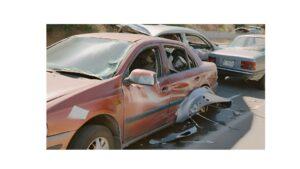Understanding Civil Liability and Negligence in Romanian Law
Understanding Civil Liability and Negligence in Romanian Law
Civil liability and negligence are key in Romanian law.
They help protect people’s rights and guide how damages are paid.
Knowing these basics is important when dealing with legal issues in Romania.
The Romanian Civil Code sets the rules for civil tort liability.
This means paying for damages done without a contract.
To prove this, four things must be true: damage must happen, an act must be wrong, there must be a cause and effect, and the person must be at fault.
At Atrium Romanian Lawyers, we know how complex civil liability and negligence cases can be.
Our team is skilled in Romanian tort law.
We offer detailed legal help for your case.
Whether you need to get compensation or defend against a claim, we’re here to help you understand Romanian law.
Key Takeaways
- Civil liability and negligence are fundamental to Romanian law;
- The Romanian Civil Code provides the legal framework;
- Four conditions must be met to establish civil tort liability;
- Intention and negligence are recognized forms of guilt;
- Compensation is proportional to participation or fault severity;
- Directors may face joint liability in certain situations;
- Criminal offenses can result in fines or imprisonment.
Civil Liability and Negligence in Romanian Law
The Romanian civil code is key to understanding civil liability and negligence.
It outlines how people and companies are held accountable for harm they cause.
Definition and Legal Framework
In Romania, civil liability means paying for damages caused by wrong actions.
The idea of tortious liability is at the heart of this.
It deals with cases where someone’s actions or lack of care harm others.
Scope of Application
Civil liability covers many areas, like personal injury and property damage.
Romanian law also looks at professional misconduct.
It emphasizes the duty of care, which means everyone must act responsibly to avoid harming others.
Key Components
To prove negligence in Romania, several important points must be shown:
- Duty of care;
- Breach of duty;
- Causation;
- Damages.
These points are the foundation for figuring out who is legally responsible in negligence cases.
| Component | Description |
|---|---|
| Duty of Care | Legal obligation to act responsibly |
| Breach of Duty | Failure to meet the required standard of care |
| Causation | Direct link between breach and resulting harm |
| Damages | Actual losses suffered by the injured party |
Knowing these components is vital for dealing with civil liability cases in Romania.
Atrium Romanian Lawyers offer expert advice on tortious liability.
They help clients get the legal support they need in this complex area.
Essential Elements of Civil Tort Liability
To understand tort liability in Romania, you need to know four key parts.
These parts are the base for negligence claims.
They also decide if damages for negligence are valid in Romania.
Existence of Damage
In Romanian law, damage is key for tort liability.
It can be material, like losing property, or moral, like emotional harm.
You must show real harm to win a claim.
Illicit Act
An illicit act in Romanian tort law is any action or lack of action that breaks the law or harms someone’s rights.
This part is crucial for starting a negligence claim in Romania.
Causal Link
Causation in negligence Romania is very important.
You must show a clear link between the wrong action and the damage.
This link is key to proving tort liability in Romania.
Guilt and Responsibility
The last part is about the person who did the wrong action.
This affects the damages for negligence in Romania.
| Element | Description | Importance in Tort Liability |
|---|---|---|
| Damage | Material or moral harm | Establishes the basis for compensation |
| Illicit Act | Violation of legal norms or rights | Defines the wrongful action |
| Causal Link | Direct connection between act and damage | Proves responsibility |
| Guilt | Perpetrator’s psychological attitude | Determines degree of liability |
Understanding Guilt in Romanian Civil Law
Guilt is key in Romanian civil law for figuring out who’s at fault.
It shows if someone knew their actions were wrong and what those actions could lead to.
In cases of legal negligence, guilt means knowing the act’s importance and choosing to do it anyway.
Romanian law splits guilt into two parts: intention and negligence.
Intention means knowing you’ll cause harm.
Negligence is about being careless or not taking the right steps.
These are important for deciding who’s to blame in civil cases.
In cases of negligence, the court looks at the defendant’s mind at the time.
This helps figure out if they knew they could harm someone or just didn’t care enough to prevent it.
Atrium Romanian Lawyers stress how crucial these ideas are in civil cases.
They say guilt in Romanian civil law can greatly affect the outcome of legal battles and how much money someone gets for being hurt.
Forms of Civil Liability
Romanian law has three main types of civil liability.
These forms are key to understanding contractual and civil liability in Romania.
Knowing them is essential for dealing with legal issues in the country.
Contractual Liability
Contractual liability happens when parties don’t meet their contract obligations.
In Romania, this is based on civil law.
It’s about when one party breaks the contract, hurting the other.
Tortious Liability
Tort law in Romania covers civil wrongs outside contracts.
It’s about harm caused by someone’s actions or carelessness.
This is a big part of legal liability in Romania.
Professional Liability
Professional negligence in Romania is a special kind of civil liability.
It affects professionals who don’t live up to their field’s standards.
This includes doctors, lawyers, and engineers whose mistakes harm their clients or patients.
| Form of Liability | Key Characteristic | Example |
|---|---|---|
| Contractual | Breach of contract terms | Failure to deliver goods as specified |
| Tortious | Civil wrongs outside contracts | Causing a car accident |
| Professional | Failure to meet professional standards | Medical malpractice |
Each type of liability has its own rules and outcomes.
For help understanding these, talk to Atrium Romanian Lawyers. They can give you detailed advice on how these might affect your case.
Types of Negligence Under Romanian Law
Romanian law divides negligence into three types.
Each type shows different levels of responsibility.
Knowing these categories helps in legal disputes in Romania.
Gross Negligence (Culpa Lata)
Gross negligence in Romanian law means extreme carelessness. It’s when the outcome was obvious to anyone with basic diligence. This shows a big failure to meet expected care standards.
Ordinary Negligence (Culpa Levis)
Ordinary negligence happens when someone doesn’t meet the care of an average person. It’s common in daily life and is key in Romanian negligence law.
Slight Negligence (Culpa Levissima)
Slight negligence is the least serious. It’s when only someone with very high diligence could have prevented the outcome. This type is less seen in court but is part of Romanian law.
These differences are crucial in deciding who’s at fault in negligence cases.
Gross negligence often leads to harsher legal outcomes than ordinary or slight negligence.
For expert advice on these principles, contact Atrium Romanian Lawyers.
Burden of Proof in Negligence Cases
In Romanian civil cases, the plaintiff usually has to prove negligence.
You must show four main things: damage, an illicit act, a causal link, and guilt.
This is how you prove the defendant was negligent.
To win a negligence case in Romania, you must prove your story is more likely than not true.
You’ll need solid evidence for each part of negligence.
This evidence might include:
- Documentation of injuries or financial losses;
- Expert testimonies;
- Witness statements;
- Physical evidence from the incident.
It’s important to know the legal effects of negligence in Romania.
Sometimes, the court can change who has to prove what.
For example, the “res ipsa loquitur” doctrine might make the defendant prove they weren’t at fault.
Also, employers must have strong reasons for firing someone.
Atrium Romanian Lawyers can help you understand how to prove negligence.
Our team of lawyers in Romania can also help you build a strong case.
Remember, proving negligence in civil cases is easier than in criminal cases.
Damages and Compensation
In Romanian negligence cases, damages and compensation are key.
The legal system in Romania recognizes various types of damages.
Knowing these can help you better understand the compensation process.
Material Damages
Material damages cover physical losses.
This includes medical bills, lost wages, and property damage.
For instance, if your car gets damaged in an accident, the repair costs are material damages.
Moral Damages
Moral damages are for non-physical harm.
They cover pain and suffering, emotional distress, and loss of life enjoyment.
These damages are important in Romanian law, even though they’re harder to measure.
Calculation Methods
Courts use different methods to figure out damages in negligence cases.
They look at injury severity, long-term effects, and economic factors.
The aim is to give fair compensation for all losses.
| Damage Type | Examples | Calculation Factors |
|---|---|---|
| Material | Medical bills, lost income | Actual costs, future expenses |
| Moral | Pain, emotional distress | Severity, duration, impact on life |
Atrium Romanian Lawyers can help you understand damages and compensation in negligence cases.
They know the details of Romanian law.
They can make sure you get fair compensation for your losses.
Professional Negligence and Malpractice
Professional negligence in Romania affects many fields like medicine, law, and engineering.
It’s key for both professionals and clients to understand this well.
Medical Malpractice
Medical malpractice in Romania happens when doctors or healthcare staff don’t meet the expected care standards.
This can harm patients. To prove these cases, expert opinions are often needed.
In recent years, medical malpractice lawsuits have gone up, showing the need for insurance for healthcare workers.
Legal Professional Negligence
Lawyers can be held liable for negligence if they don’t meet their duty to clients.
This could be due to missed deadlines, poor representation, or conflicts of interest.
In Romania, legal malpractice cases are complex, needing deep knowledge of legal ethics and standards.
Engineering and Construction Negligence
In engineering and construction, negligence can have severe outcomes.
Failures or safety issues can cause big damage and even loss of life.
Romanian laws make engineers and contractors responsible for following safety and industry standards.
| Professional Field | Common Types of Negligence | Potential Consequences |
|---|---|---|
| Medicine | Misdiagnosis, Surgical errors | Patient harm, Legal action |
| Law | Missed deadlines, Poor advice | Client financial loss, Disbarment |
| Engineering | Design flaws, Safety oversights | Structural failures, Injuries |
Atrium Romanian Lawyers, we are experts in handling professional negligence cases.
They offer advice on dealing with the complexities of professional malpractice law in Romania.
Directors’ Civil Liability in Corporate Law
Directors’ civil liability is key in corporate governance in Romania.
The law clearly states what directors owe to their company, shareholders, and others.
Knowing these duties is vital for good management and following the law.
Liability Towards Company
Directors must be careful and diligent in their work.
They are responsible for keeping financial records right and paying dividends correctly.
If they don’t, they could face legal trouble for harming the company.
Liability Towards Shareholders
Shareholders can sue directors for bad management or not following their duties.
This part of the law protects shareholders and encourages good corporate behavior.
Liability Towards Third Parties
Directors can be held liable to outsiders if they make deals without permission. This can lead to legal issues and fines.
| Liability Type | Key Aspects | Potential Consequences |
|---|---|---|
| Company Liability | Financial records, dividend payments | Damages, legal action |
| Shareholder Liability | Fiduciary duties, management decisions | Shareholder lawsuits, reputational damage |
| Third-Party Liability | Transactions beyond authority | Financial penalties, legal disputes |
Atrium Romanian Lawyers can help directors understand their legal duties.
They ensure directors follow the law and reduce legal risks.
It’s important for directors to know their responsibilities to avoid legal problems.
Statute of Limitations for Negligence Claims
In Romania, knowing the statute of limitations for negligence claims is key.
It helps protect your rights.
For most negligence claims, you have three years from when you knew or should have known about the damage and who was responsible.
If you’re in a car accident, you must file a claim within three years.
Romania holds the at-fault party responsible for damages.
Even if you were partly to blame, you can still get compensation.
Time limits vary for different negligence claims.
For example, product liability claims might have shorter deadlines.
To avoid missing your claim deadline, contact Atrium Romanian Lawyers quickly after the incident.
| Type of Claim | Statute of Limitations |
|---|---|
| General Negligence | 3 years |
| Car Accident | 3 years |
| Product Liability | Shorter period (varies) |
Don’t let time limits expire and lose your right to sue.
Knowing the statute of limitations for negligence claims in Romania helps you act quickly.
This way, you can protect your legal rights effectively.
Defenses Against Negligence Claims
In Romania, it’s important to know how to defend against negligence claims.
The law offers several ways to fight liability in negligence cases.
Let’s look at the main defenses available under Romanian law.
Contributory Negligence
Contributory negligence in Romania is a key defense.
It happens when the injured person’s actions cause their own harm.
For example, if someone walks into the street without looking and gets hit, the driver might say it’s the pedestrian’s fault.
This could lessen the driver’s responsibility or even wipe it out.
Force Majeure
Force majeure is another strong defense against negligence claims in Romania.
It means events that are beyond anyone’s control.
Things like natural disasters, wars, or government actions fall under this.
If a contractor can’t finish a project because of a sudden flood, they might use force majeure as a defense.
Consent of the Injured Party
When someone knowingly takes a risk, it can be a defense.
This is common in sports or fun activities.
For example, if someone gets hurt in a boxing match, they might not have a strong case against negligence because they knew the risks.
Other defenses include statutory immunity, the statute of limitations, and lack of causation.
Atrium Romanian Lawyers can offer expert advice on these defenses.
They can help build a strong case against negligence claims.
Criminal Aspects of Civil Liability
In Romania, civil and criminal liability can sometimes overlap.
This happens when actions causing harm are both civilly and criminally wrong.
For example, serious medical mistakes leading to injury or death fall into this category.
There’s a big difference between civil and criminal cases in Romania.
Civil cases aim to compensate for damages.
Criminal cases, on the other hand, can lead to fines, jail time, or other penalties.
Criminal cases need strong evidence, beyond any doubt.
For example, car accidents show how civil and criminal liability can mix.
While insurance usually covers damage, serious accidents might lead to criminal charges.
The time to file for property damage is 3 years.
| Aspect | Civil Liability | Criminal Liability |
|---|---|---|
| Focus | Compensation | Punishment |
| Burden of Proof | Balance of probabilities | Beyond reasonable doubt |
| Outcome | Monetary damages | Fines, imprisonment |
Atrium Romanian Lawyers can help you understand criminal liability in civil cases in Romania.
Knowing these details is key when dealing with legal issues that involve both civil and criminal aspects.
Conclusion
Civil liability and negligence in Romanian law are complex.
They balance individual rights with societal duties.
The goal is to fairly compensate victims and set clear conduct standards.
It’s important to understand guilt, types of negligence, and liability types.
Romanian tort law has different levels of negligence, from gross to slight.
It also divides liability fairly when many are involved.
Professional negligence, like medical malpractice, is covered too.
Atrium Romanian Lawyers can help you understand these laws.
As Romania’s laws change, the basics of civil liability and negligence stay the same.
New technologies, like AI, might bring new challenges.
It’s crucial to keep up with these changes to handle Romanian law’s complexities.
FAQ
What are the essential elements of civil tort liability in Romanian law?
In Romanian law, civil tort liability has four key parts.
These are: damage must exist, an act must be wrong, there must be a link between the act and the damage, and the person doing it must be at fault.
All these must be true to prove someone was negligent.
How is guilt defined in Romanian civil law?
Guilt in Romanian civil law means how someone feels about their wrong actions and their effects.
It has two parts: knowing what you’re doing and choosing to do it.
Romanian law sees two kinds of guilt: doing it on purpose and being careless.
What are the different types of negligence recognized under Romanian law?
Romanian law splits negligence into three kinds.
These are: serious carelessness, normal carelessness, and very slight carelessness.
The difference is based on how much care is expected and if the outcome was predictable.
Who bears the burden of proof in Romanian negligence cases?
In Romanian negligence cases, the person suing usually has to prove their case.
They must show there was damage, a wrong act, a link between the act and the damage, and the person was at fault.
They need to have evidence for each part to prove the defendant was negligent.
What types of damages can be claimed in negligence cases under Romanian law?
Romanian law lets people claim two kinds of damages in negligence cases.
Material damages are for things you can see like medical bills, lost pay, and damaged property.
Moral damages are for things you can’t see like pain, emotional hurt, or losing the joy of life.
What is the statute of limitations for negligence claims in Romania?
In Romania, you usually have three years to sue for a tort.
This starts when you knew or should have known about the damage and who did it.
But, some cases might have different time limits, so it’s important to know these.
What are some common defenses against negligence claims in Romanian law?
In Romanian law, common defenses against negligence claims include: if both sides were careless, if something outside of anyone’s control happened, or if the injured person agreed to it.
Other defenses might be if the law protects the defendant, if too much time has passed, or if the defendant’s actions didn’t cause the injury.
How does professional negligence differ from general negligence in Romanian law?
Professional negligence in Romania is about specific fields like medicine, law, and engineering.
It’s when professionals don’t meet the expected standards, causing harm.
These cases often need expert witnesses and might involve insurance for professionals.
Can civil liability overlap with criminal liability in Romanian law?
Yes, in some cases, civil and criminal liability can overlap in Romania.
If an action causes damages, it might also be a crime, especially if it’s very careless or intentional.
Civil cases focus on paying for damages, while criminal cases can lead to fines or jail.
What is the role of the Romanian Civil Code in civil liability and negligence cases?
The Romanian Civil Code sets the rules for civil liability and negligence.
It explains what makes someone liable, including the duty of care, breaking that duty, causation, and damages.
The Civil Code is key in figuring out who is responsible in negligence cases in Romania.
What is civil liability under Romanian law?
Civil liability in Romania refers to the legal obligation of a person or entity to compensate for damage caused to another party.
Under Romanian civil law, this concept is primarily governed by the Civil Code. Civil liability can arise from various situations, including breach of contract, negligence, or other forms of misconduct.
It is important to note that civil liability is distinct from criminal responsibility and focuses on compensating the injured party rather than punishing the wrongdoer.
In cases of negligence, the injured party must establish that the defendant had a duty of care, breached that duty, and caused harm as a result.
How does Romanian law define negligence?
Negligence under Romanian law is generally understood as a failure to exercise reasonable care or caution in one’s actions or omissions, resulting in harm to another party.
The Romanian Civil Code does not provide a specific definition of negligence, but it is interpreted through case law and legal doctrine. To establish negligence, the plaintiff must prove four elements: duty of care, breach of that duty, causation, and damage.
Romanian courts consider various factors when determining negligence, including the foreseeability of harm, the defendant’s level of expertise, and the circumstances surrounding the incident.
What is the difference between negligence and willful misconduct in Romanian civil law?
In Romanian civil law, there is a significant distinction between negligence and willful misconduct.
Negligence involves a failure to exercise proper care or caution, often resulting from carelessness or oversight.





 Types of Liability in Car Accident Cases
Types of Liability in Car Accident Cases Proving Liability in Car Accident Cases
Proving Liability in Car Accident Cases